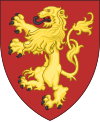Portal:European Union
Introduction
The European Union (EU) is a supranational political and economic union of 27 member states that are located primarily in Europe. The Union has a total area of 4,233,255 km2 (1,634,469 sq mi) and an estimated total population of over 449 million. The EU has often been described as a sui generis political entity combining the characteristics of both a federation and a confederation. Containing 5.8% of the world population in 2020, EU member states generated a nominal gross domestic product (GDP) of around US$16.6 trillion in 2022, constituting approximately one sixth of global nominal GDP. Additionally, all EU states except Bulgaria have a very high Human Development Index according to the United Nations Development Programme. Its cornerstone, the Customs Union, paved the way to establishing an internal single market based on standardised legal framework and legislation that applies in all member states in those matters, and only those matters, where the states have agreed to act as one. EU policies aim to ensure the free movement of people, goods, services and capital within the internal market; enact legislation in justice and home affairs; and maintain common policies on trade, agriculture, fisheries and regional development. Passport controls have been abolished for travel within the Schengen Area. The eurozone is a group composed of the 20 EU member states that have fully implemented the economic and monetary union and use the euro currency. Through the Common Foreign and Security Policy, the union has developed a role in external relations and defence. It maintains permanent diplomatic missions throughout the world and represents itself at the United Nations, the World Trade Organization, the G7 and the G20. Due to its global influence, the European Union has been described by some scholars as an emerging superpower. In 2012, the EU was awarded the Nobel Peace Prize. The United Kingdom became the only member state to leave the EU, in 2020; ten countries are aspiring or negotiating to join it. (Full article...) Selected article The euro (currency sign: €; currency code: EUR) is the official currency of the European Union (EU). Nineteen member states have adopted it, known collectively as the Eurozone (Austria, Belgium, Cyprus, Estonia, Finland, France, Germany, Greece, Ireland, Italy, Latvia, Lithuania, Luxembourg, Malta, the Netherlands, Portugal, Slovakia, Slovenia, Spain). The currency is also used in five further countries with formal agreements and six other countries without such agreements. Hence it is the single currency for over 320 million Europeans. Including areas using currencies pegged to the euro, the euro directly affects close to 500 million people worldwide. With more than €610 billion in circulation as of December 2006 (equivalent to US$802 billion at the exchange rates at the time), the euro is the currency with the highest combined value of cash in circulation in the world, having surpassed the U.S. dollar (USD). Taking official estimates of 2007 GDP, the Eurozone is the largest economy in the world by March 2008 after the USD/EUR exchange rate surpassed 1.56. The euro was introduced to world financial markets as an accounting currency in 1999 and launched as physical coins and banknotes on 1 January 2002. It replaced the former European Currency Unit (ECU) at a ratio of 1:1. The euro is managed and administered by the Frankfurt-based European Central Bank (ECB) and the Eurosystem (composed of the central banks of the euro zone countries). As an independent central bank, the ECB has sole authority to set monetary policy. The Eurosystem participates in the printing, minting and distribution of notes and coins in all member states, and the operation of the Eurozone payment systems. Selected picturePhoto credit: Daniel Schwen The interior of the Neue Wache, the central memorial of Germany for victims of war and tyranny. Located in Berlin, the building was originally built as a guardhouse, and has been used as a war memorial since 1931. The statue, Mother with her Dead Son is directly under the oculus, and so is exposed to the rain, snow and cold, symbolising the suffering of civilians during World War II.
Did you know?... that the presidency of the EU Council rotates every half year? ... that the EU parliamentary election is the world's biggest transnational election? ... that the European Union was awarded the Nobel Peace Prize in 2012? Selected cityValletta, population 6,444 (2014), is the capital city of Malta. The whole city was inscribed as a UNESCO World Heritage Site in 1980. The official name the Order of Saint John gave to the city was Humilissima Civitas Valletta — a city bound to humility. However, with the building of bastions, curtains and ravelins, along with the beauty of the baroque buildings along its streets, it became known as Superbissima — 'Most Proud', amongst the ruling houses of Europe. In Maltese it is known as Il-Belt, simply meaning "The City". The foundation stone of Valletta was laid by the Grandmaster of the Order of Saint John, Jean Parisot de Valette, on 28 March 1566; The Order decided to found a new city on the Xiberras peninsula just after the end of the Great Siege of Malta in 1565, so as to fortify the Order's position in Malta, effectively binding the Knights to the island. The city was designed by Francesco Laparelli, while many of the most important buildings were built by Girolamo Cassar. Valletta, hence, is an urban area which boasts many buildings from the 16th century and onwards, but most of them were built during the time of the Knights of St. John of Jerusalem (the Knights Hospitaller, or Knights of Malta). General imagesThe following are images from various European Union-related articles on Wikipedia.
TopicsFeatured contentFeatured articles
Featured lists
Featured contentGood articles
CategoriesRelated portalsAssociated WikimediaThe following Wikimedia Foundation sister projects provide more on this subject:
Discover Wikipedia using portals |
































































